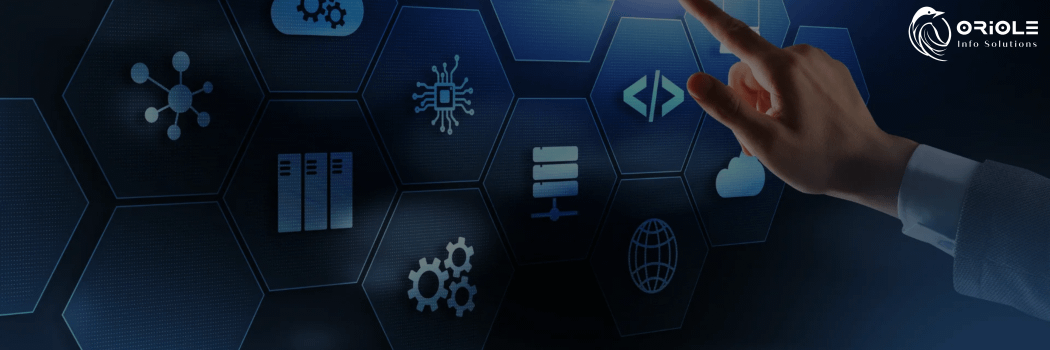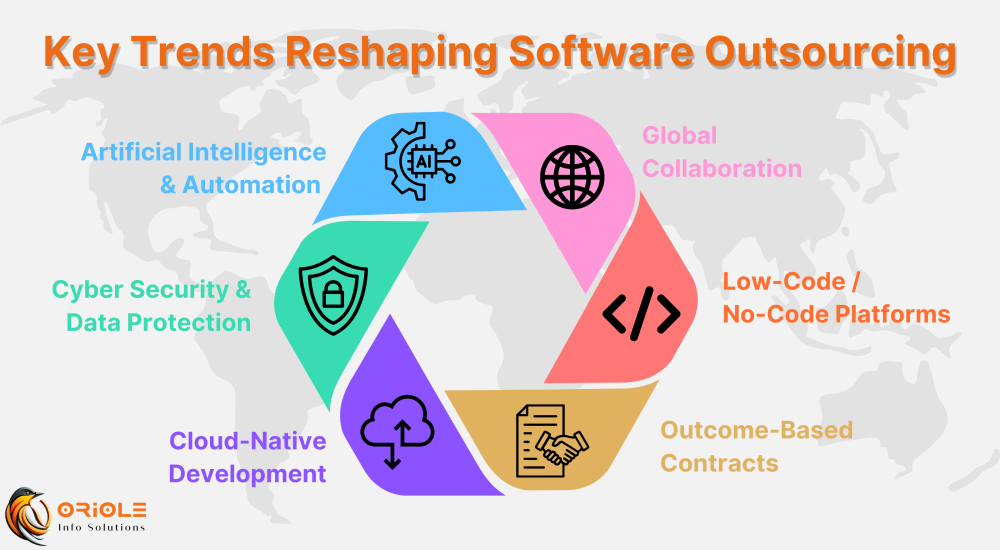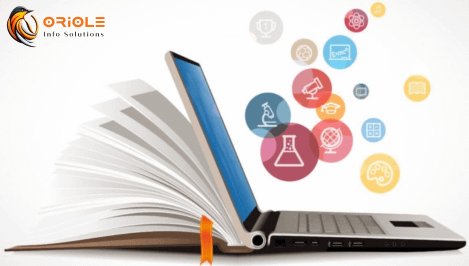Introduction:
In today’s rapidly evolving global economy, software outsourcing has become an integral part of business strategy. Companies, from startups to enterprises, are increasingly relying on outsourcing to access specialized expertise, reduce costs, and speed up development cycles. The advent of new technologies, business models, and global interconnectedness is reshaping the outsourcing landscape in ways that were once unimaginable.

Globalization has also significantly impacted the workforce landscape. As businesses continue to face intense competition and growing customer demands, outsourcing software development offers an efficient solution to remain agile and scalable. With advancements like Artificial Intelligence (AI), automation, and the rise of remote collaboration, the outsourcing industry is undergoing a significant transformation. These shifts bring new opportunities, but also pose fresh challenges that businesses must navigate.
Looking ahead to 2025 and beyond, the software outsourcing industry is expected to evolve even further. The key trends outlined in this blog will offer a glimpse into the future of outsourcing and help businesses understand how to leverage these trends to stay competitive in an increasingly globalized digital economy.
Key Trends Reshaping Software Outsourcing:
The future of software outsourcing in 2025 and beyond will be defined by emerging technologies and evolving business dynamics. AI-driven development, automation, and cloud solutions will enhance efficiency, while blockchain integration and robust cybersecurity will ensure secure, transparent operations. Remote work, agile methodologies, and scalable solutions will reshape collaboration, making global outsourcing more accessible and efficient. By embracing these trends, businesses can leverage innovation, optimize resources, and achieve sustainable growth in an increasingly competitive and technology-driven landscape.

a. Rise of Artificial Intelligence and Automation:
Artificial Intelligence (AI) and automation have already begun reshaping the software development landscape, and this transformation is poised to accelerate in the coming years. AI-powered tools like ChatGPT, GitHub Copilot, and other machine learning-based coding assistants are revolutionizing how developers approach programming. These tools are able to analyze vast amounts of code, identify errors, and even suggest improvements—streamlining the development process, enhancing productivity, and reducing human error.
Moreover, AI-driven automation in testing and deployment is cutting down the time it takes to bring products to market. Automation not only improves efficiency but also reduces the cost associated with manual labor, helping companies save both time and money. By predicting potential project risks and offering real-time insights into resource allocation, AI technologies are making software development smarter and more cost-effective.
As AI continues to evolve, we can expect outsourcing companies to integrate more AI-based solutions into their offerings. From chatbots managing customer support to machine learning models optimizing software performance, the future of outsourcing will be heavily influenced by these advancements.
b. Focus on Cybersecurity and Data Protection:
In an era where data is one of the most valuable assets, cybersecurity and data protection have become paramount in the outsourcing industry. As companies entrust their software development and other critical business processes to third-party providers, ensuring the security of sensitive information has become a top priority.
With stricter data privacy laws, such as the General Data Protection Regulation (GDPR) and the California Consumer Privacy Act (CCPA), businesses must comply with stringent regulations to avoid potential fines and reputational damage. As a result, outsourcing partners are increasingly focusing on implementing advanced encryption methods, multi-factor authentication, and blockchain technology to ensure the integrity and privacy of data.
Blockchain, in particular, is gaining traction in outsourced projects due to its ability to provide transparent, tamper-proof record-keeping. By leveraging blockchain, outsourcing companies can offer secure, decentralized solutions for sharing data and verifying transactions, which is especially important in industries such as finance and healthcare.
c. Talent Shortage Driving Global Collaboration:
As demand for skilled developers continues to rise, especially in areas like AI, machine learning, and blockchain, businesses are facing a significant talent shortage in certain regions. In response, many companies are expanding their search for skilled developers beyond their local markets, embracing global collaboration in software development.
Hybrid teams, which combine in-house and outsourced developers, are becoming more common as companies look for ways to bridge the talent gap. By assembling global teams, businesses can tap into diverse skill sets, benefit from 24/7 development cycles, and address resource shortages without the overhead costs of hiring additional in-house staff.
With global talent pools at their disposal, businesses can access top-tier developers from regions like Asia, India, and Latin America, offering a competitive advantage and ensuring they remain agile in a fast-paced digital environment.
d. Sustainability and Green Outsourcing:
Sustainability is becoming an increasingly important focus in software outsourcing. As companies and consumers alike become more environmentally conscious, businesses are looking for ways to reduce their carbon footprint and embrace eco-friendly practices, including in their outsourcing relationships.
Green outsourcing, which emphasizes sustainability in software development and business operations, is gaining traction. Companies are increasingly seeking outsourcing partners who prioritize eco-friendly practices, such as using energy-efficient data centers, promoting paperless workflows, and adopting renewable energy sources for their operations.
This trend is not only driven by a desire to be environmentally responsible but also by consumer demand for sustainable products and services. Companies that align their outsourcing strategies with sustainability goals can enhance their brand reputation and appeal to eco-conscious consumers.
e. Shift Towards Outcome-Based Contracts:
Traditional outsourcing contracts often focused on hourly rates or time-and-material agreements. However, businesses are shifting toward outcome-based contracts, where the focus is on achieving specific deliverables and business outcomes. This shift allows both parties to focus on results rather than billable hours, fostering greater accountability and efficiency.
Outcome-based outsourcing models encourage faster delivery times, higher-quality products, and more satisfied clients. By tying compensation to the achievement of milestones or overall project success, outsourcing partners have a vested interest in ensuring the project is completed efficiently and meets the client’s expectations. This trend is expected to grow in popularity as businesses seek more transparent, results-driven outsourcing relationships.
The Role of Emerging Technologies

Emerging technologies will significantly influence software outsourcing trends in 2025 and beyond. Artificial Intelligence, Machine Learning, Cloud Computing, Blockchain, and Automation will streamline operations, enhance efficiency, and reduce costs. Additionally, advancements in cybersecurity and data analytics will address evolving challenges, ensuring secure and scalable solutions. These technologies will drive innovation, enabling businesses to achieve greater flexibility and sustainable growth.
a. 5G and Edge Computing:
With 5G technology becoming increasingly widespread, outsourcing companies will benefit from faster, more reliable internet connectivity, enabling real-time collaboration across borders. The reduced latency and increased bandwidth provided by 5G networks will allow software development teams to work more efficiently, share large files instantly, and leverage advanced tools like real-time collaborative coding platforms.
Additionally, edge computing—where data is processed closer to its source rather than being sent to a centralized cloud—will enhance the speed and reliability of outsourced projects, especially in industries like IoT, autonomous vehicles, and healthcare.
b. Cloud-Native Development:
The move toward cloud-native development, which uses microservices, serverless architectures, and containerization technologies like Kubernetes and Docker, is revolutionizing the way software is built and deployed. By focusing on modular, scalable, and flexible systems, outsourcing companies can create software that is easier to maintain, update, and scale over time.
Cloud-native development not only enhances collaboration between in-house and outsourced teams but also ensures that software can be deployed quickly, efficiently, and reliably, regardless of where the development team is located.
c. Low-Code/No-Code Platforms:
Low-code and no-code platforms are transforming software development by enabling non-developers to create applications without writing extensive lines of code. This democratization of software development is particularly useful for outsourcing companies that need to deliver projects quickly and cost-effectively.
Outsourcing teams are increasingly adopting low-code platforms for rapid prototyping, allowing them to deliver functional applications with minimal resources and in a shorter time frame. This trend not only reduces the dependency on highly skilled developers but also allows businesses to empower their non-technical teams to contribute to the development process.
Challenges and Opportunities in 2025

While the future of software outsourcing is filled with exciting possibilities, there are also challenges that businesses must overcome. Issues such as quality control, intellectual property (IP) protection, communication barriers, and the complexity of managing global teams will continue to persist.
However, the rapid pace of technological advancements presents numerous opportunities to overcome these obstacles. By embracing AI, automation, and cloud-based tools, businesses can enhance their outsourcing strategies, ensure better collaboration, and protect sensitive information more effectively.
The global talent pool and advancements in digital tools also present an opportunity for businesses to gain a competitive edge, innovate faster, and create products that meet the evolving demands of the market.
Conclusion:
As we move toward 2025 and beyond, the software outsourcing industry will continue to evolve, driven by technological advancements, shifting business models, and changing client expectations. The trends discussed in this blog—AI integration, cybersecurity, sustainability, and hybrid outsourcing models—are reshaping how businesses approach software development.
For companies to remain competitive, it is crucial to adapt to these changes, leverage emerging technologies, and embrace new outsourcing strategies. By doing so, businesses can achieve faster development cycles, reduced costs, and greater innovation, ensuring long-term success in an increasingly globalized digital landscape.